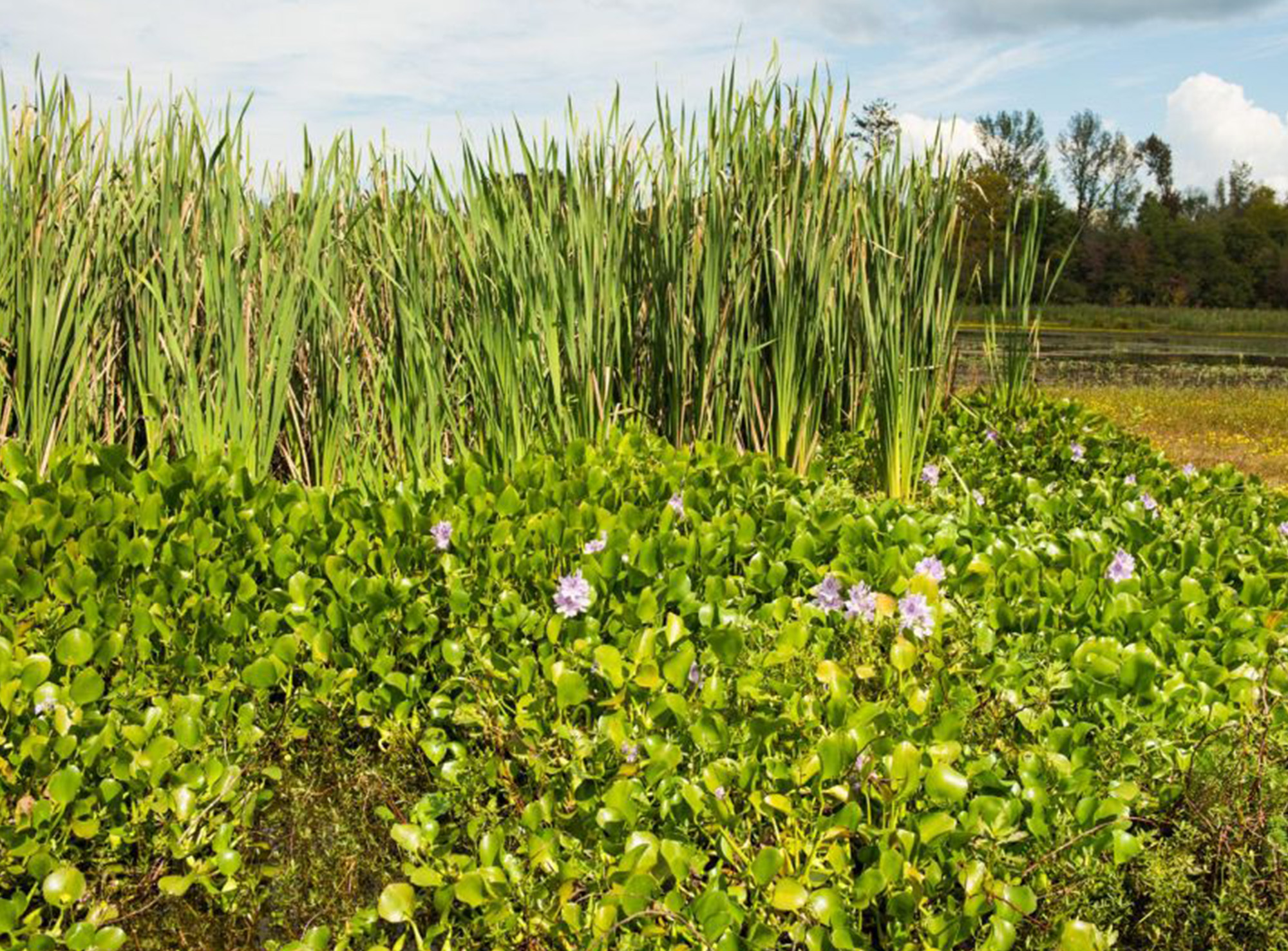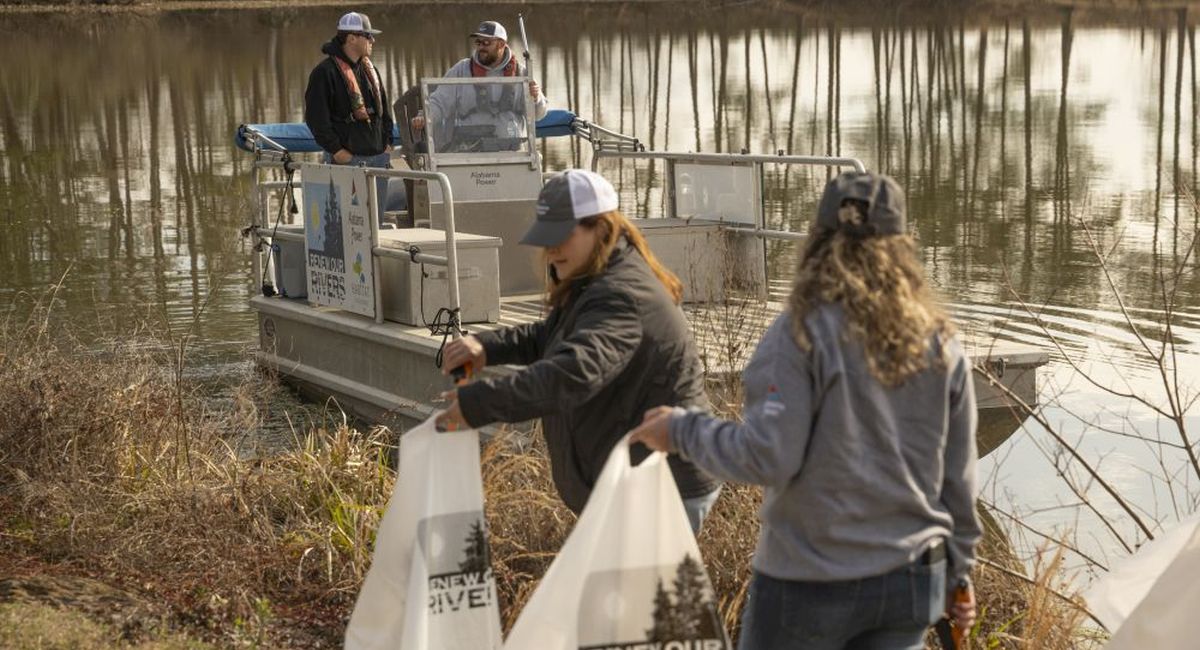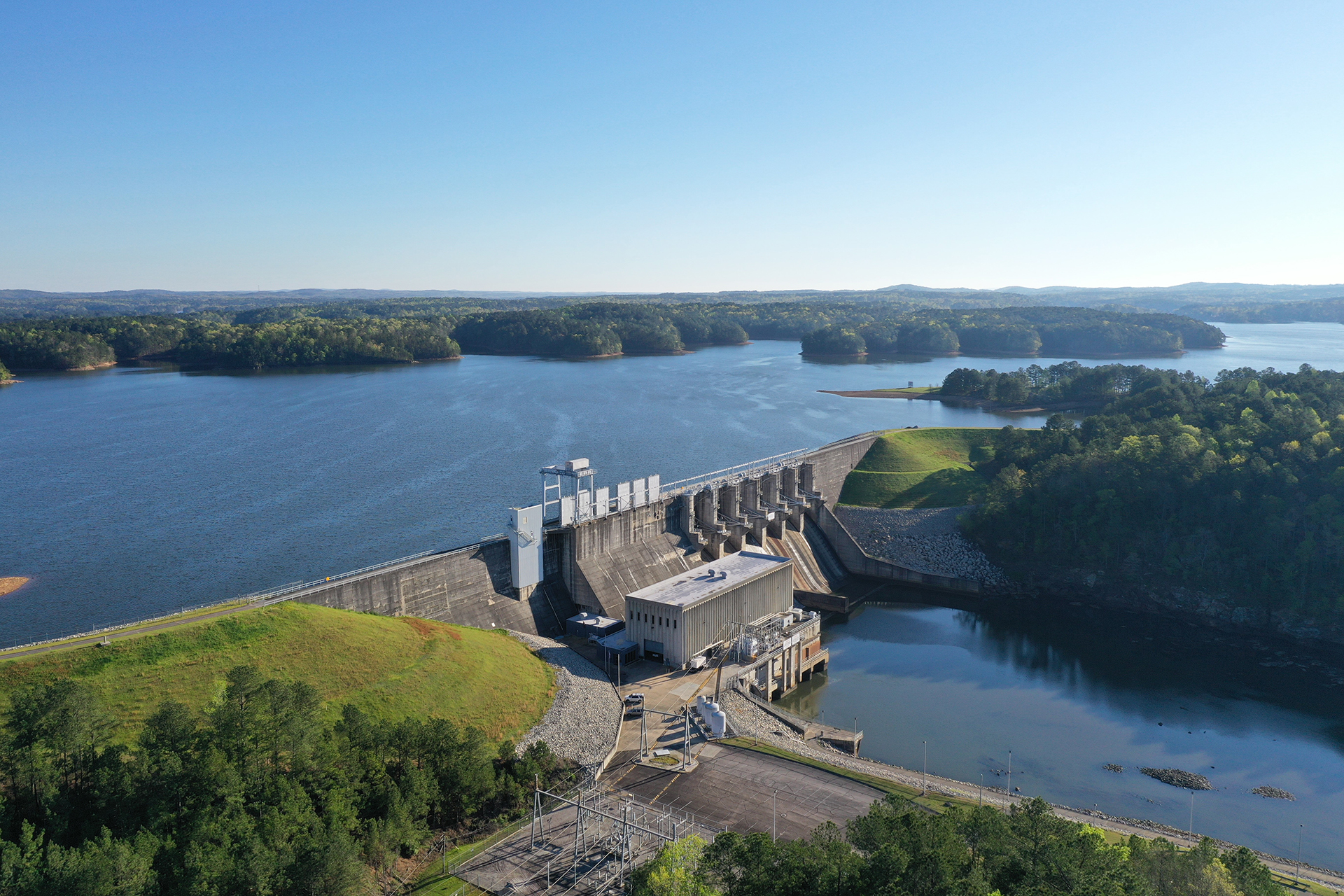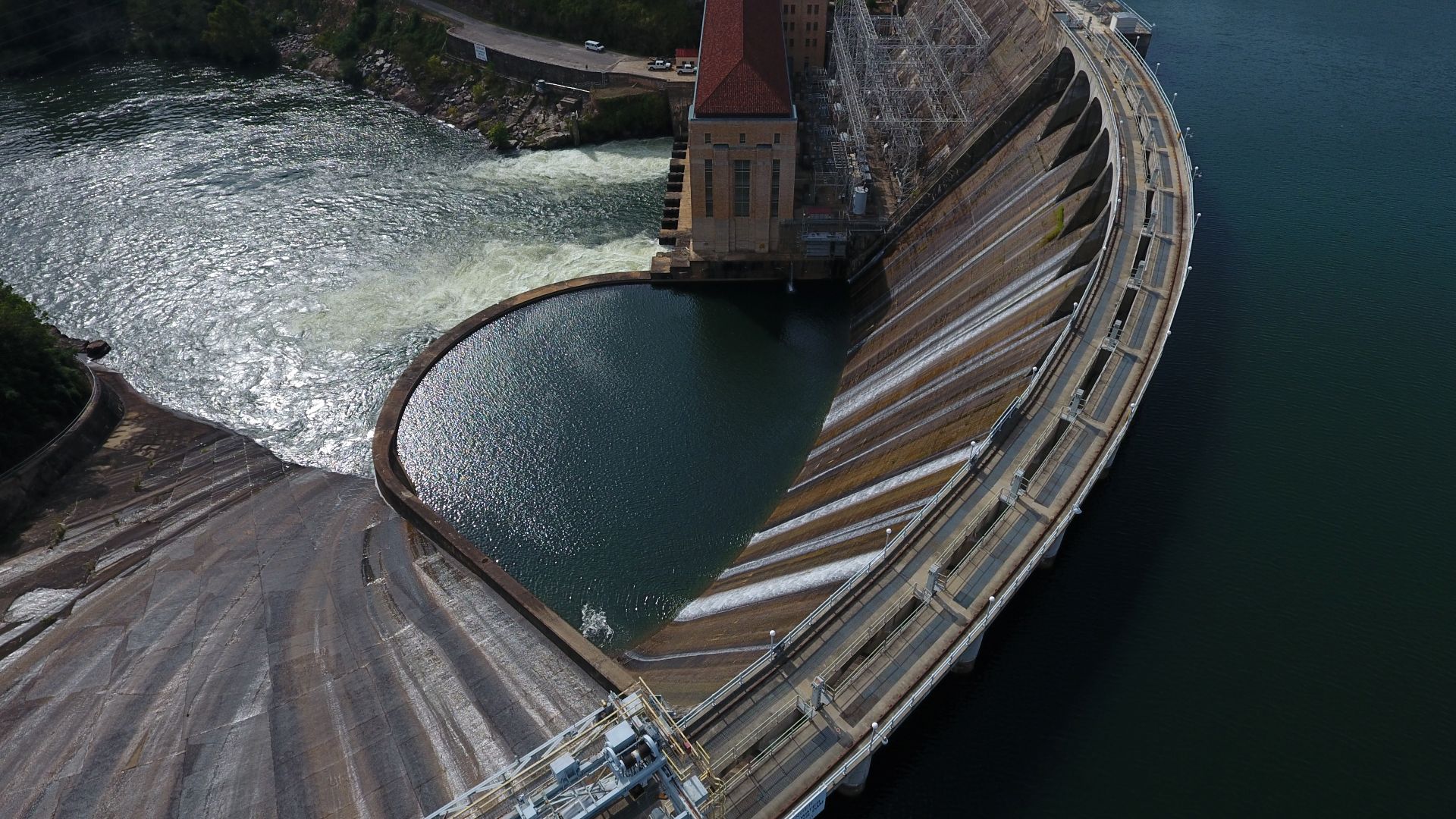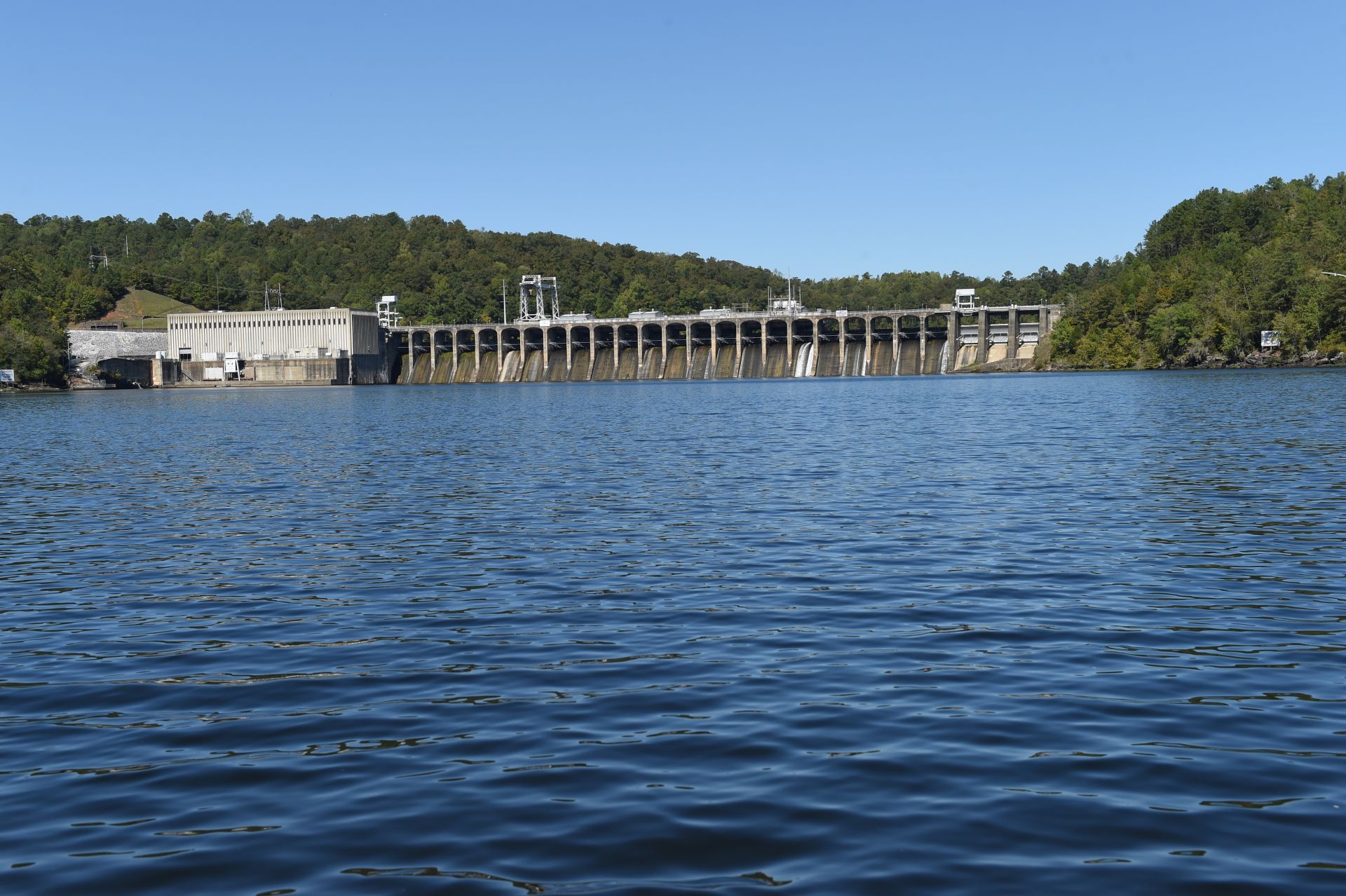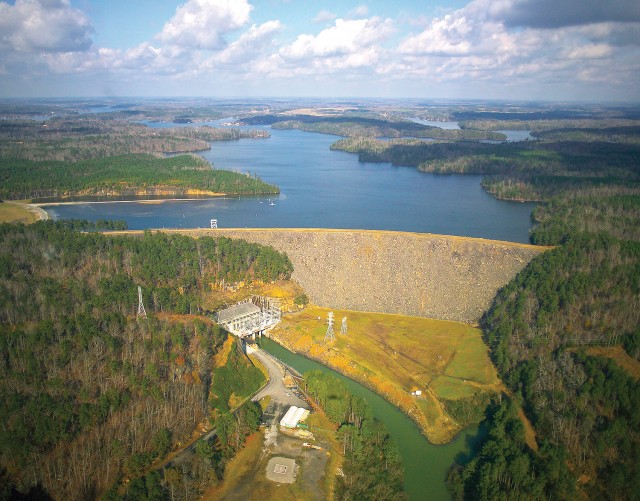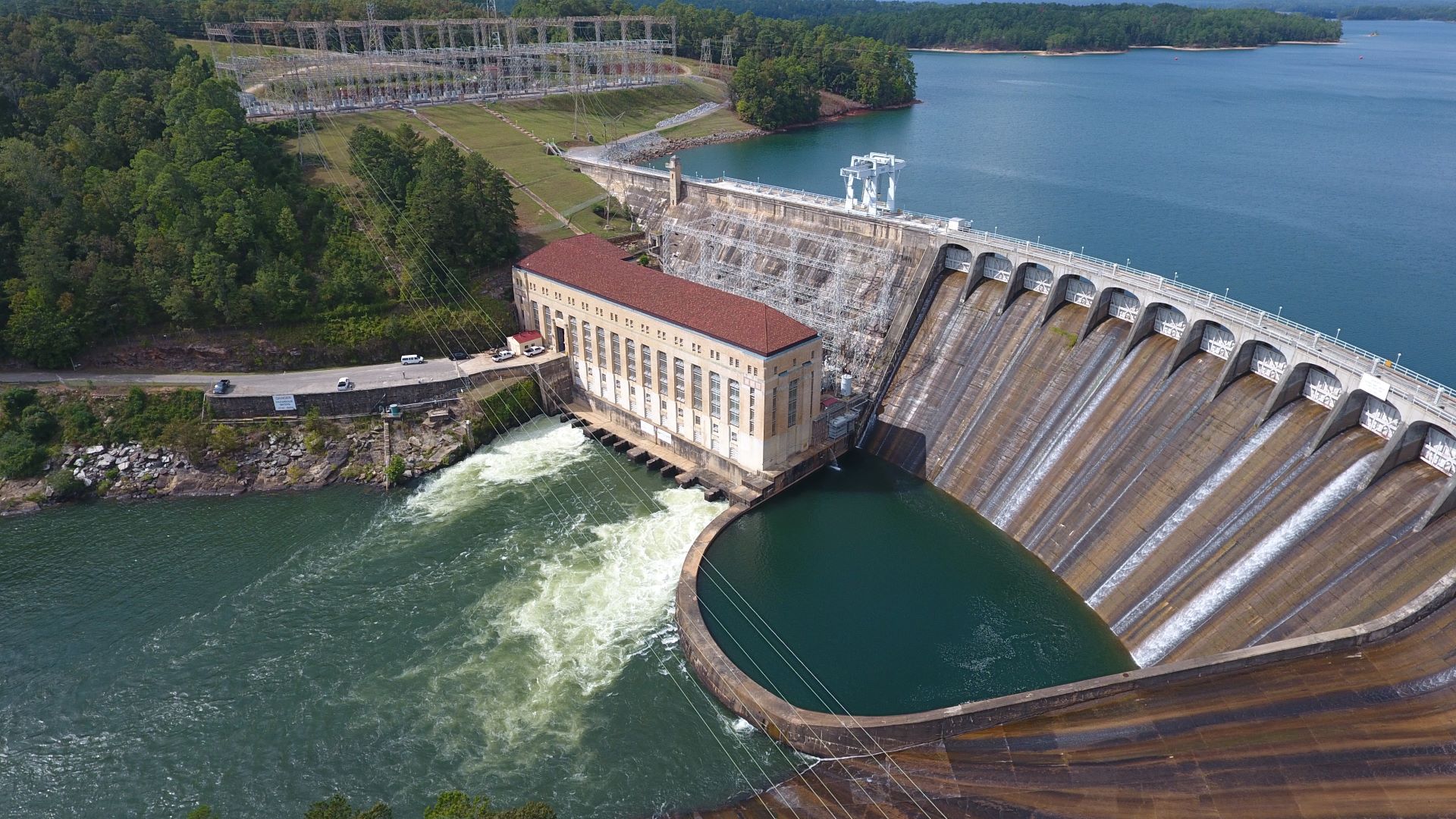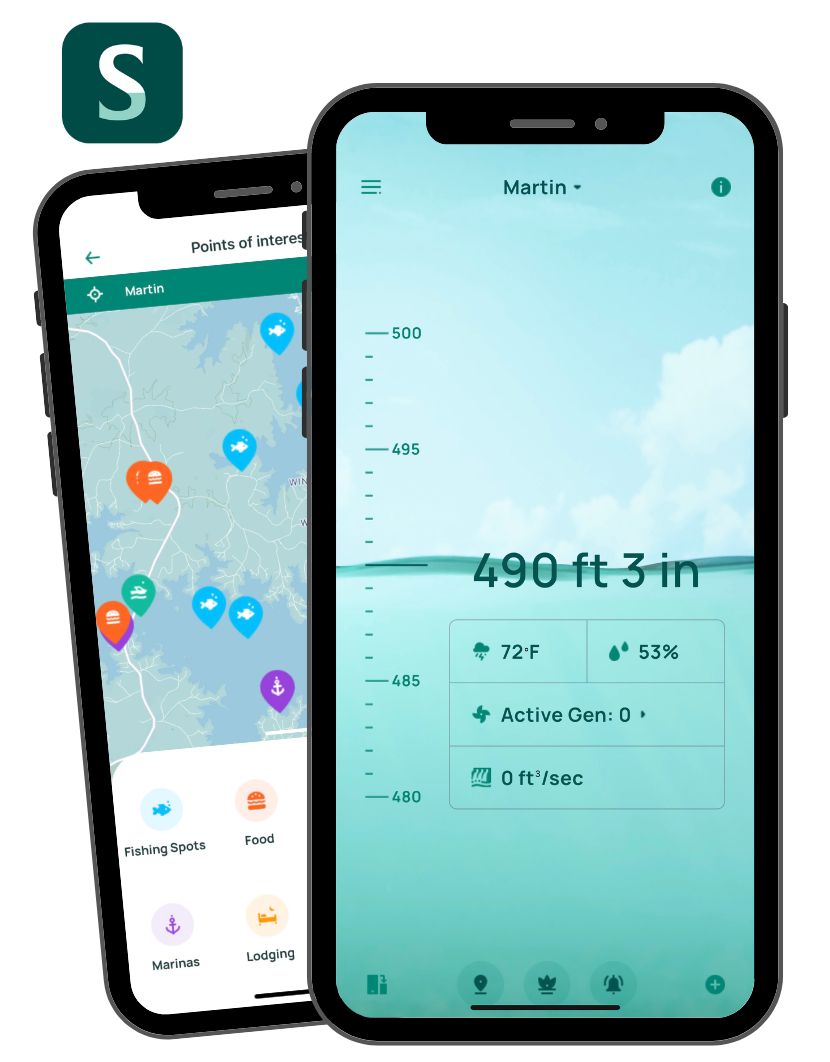Each spring, many homeowners have a hard time getting rid of weeds.
Similarly, this is the time of year when some property owners and boaters on Alabama Power lakes begin to notice water weeds. That's why a five-member team of trained Environmental Affairs specialists is out on company lakes, checking for the growth of water plants and managing vegetation with federally approved herbicides, as needed.
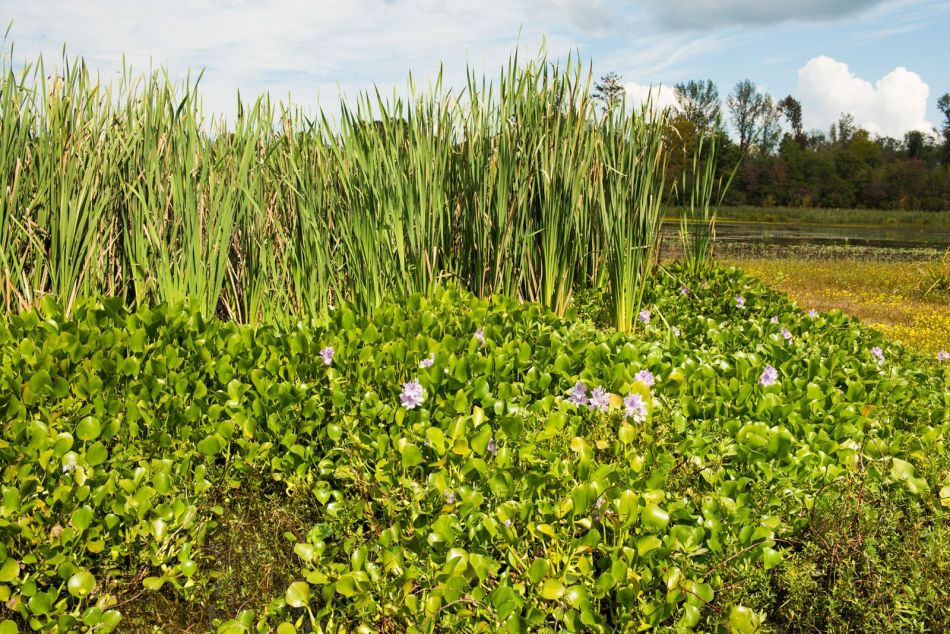 Nuisance plants may have thick, tangled growth that can be seen under the surface or on top of the water. These plants can make boat travel difficult or even make it unpleasant to jump off one's own pier.
Nuisance plants may have thick, tangled growth that can be seen under the surface or on top of the water. These plants can make boat travel difficult or even make it unpleasant to jump off one's own pier.
"One of our goals is to keep our 3,500 miles of shoreline navigable and enjoyable for public use," said Wes Anderson, Alabama Power Environmental Affairs team leader – Water Field Services. "That includes assessing and monitoring the waters to see whether control measures are needed."
He said that Lay Lake is the main reservoir that requires aquatic plant management, though there's a "continuing battle" on the Lower Coosa River system, mostly affecting Bouldin, Jordan and Mitchell lakes. One of the team's primary targets is lyngbya, a hardy and difficult to control algae that produces thick, brown-colored and foul-smelling mats. Although lyngbya has long been on the list, there are other species, as well, whose numbers continue to grow and which had not been present in the past.
"We continually manage these lakes so that they're not overtaken by nuisance vegetation, such as lyngbya, milfoil and hydrilla, and other kinds of invasive aquatic plants," said Anderson, who has worked at the company for 27 years.
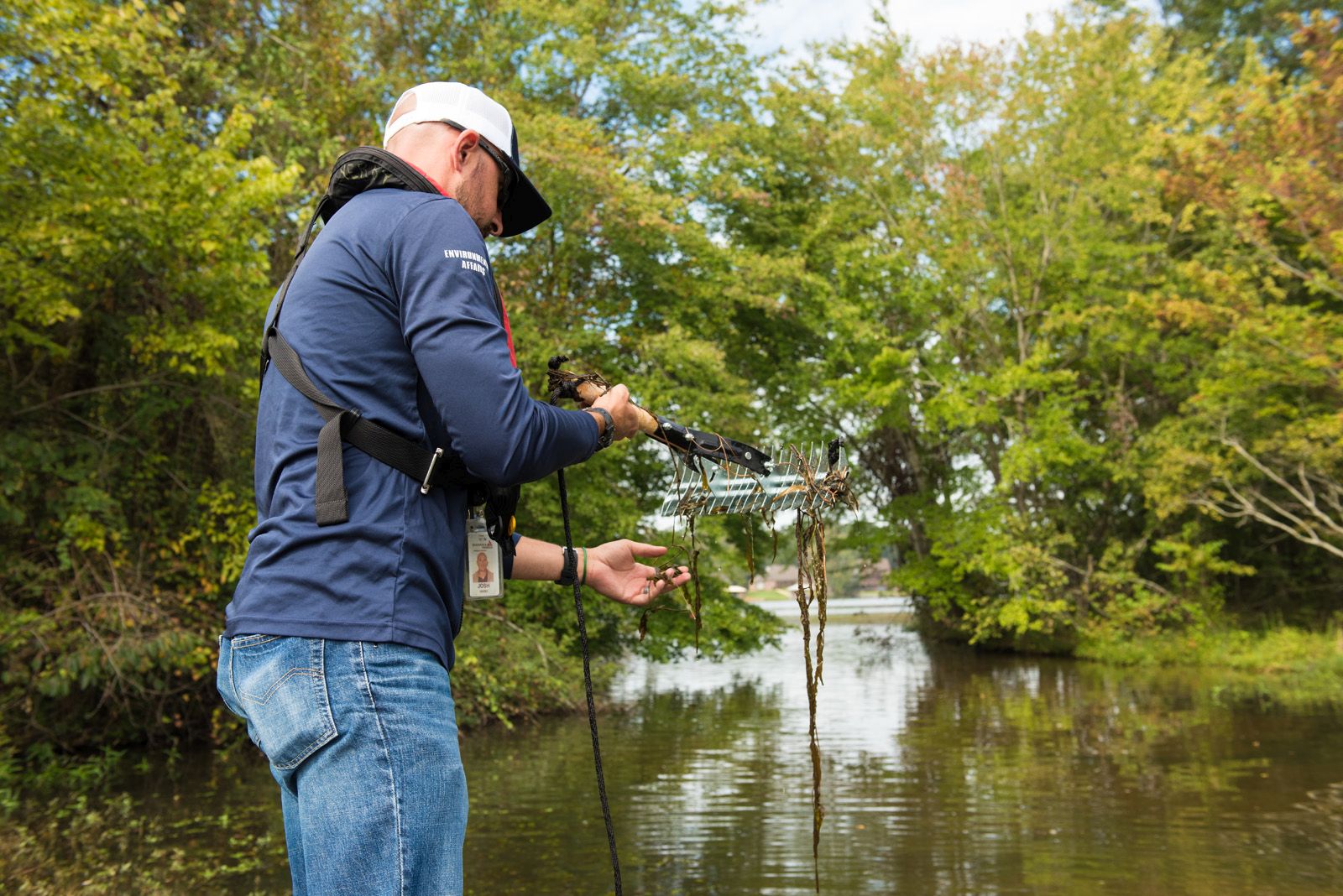 Most of the areas are treated by full-time, trained Alabama Power employees. When treatments are conducted by contractors, the Environmental Affairs team provides oversight, including the correct herbicides and exact locations to be treated.
Most of the areas are treated by full-time, trained Alabama Power employees. When treatments are conducted by contractors, the Environmental Affairs team provides oversight, including the correct herbicides and exact locations to be treated.
Aquatic vegetation management plans for Alabama Power's lakes are included in hydro operations licenses issued by the Federal Energy Regulatory Commission (FERC). Alabama Power's hydro licenses direct how the company manages nuisance and invasive plants to keep waters navigable, minimize impacts to recreation and the ecology of the reservoir, protect public health and ensure the ongoing ability to produce hydropower.
"The company strives to be a good steward of our state's natural resources," Anderson said. "Our goal is to balance the many uses of the reservoirs and protect these resources as we have done for many decades."
The Environmental Affairs team uses only herbicides approved by the U.S. Environmental Protection Agency. All employees and contractors are state-licensed and certified to apply aquatic herbicides to state waters, and undergo rigorous training to properly apply herbicides used for algae and aquatic plant management. The team also participates in continuing education courses and is actively involved with industry groups and researchers.
"These herbicides are very safe and are designed to target plants and algae," Anderson said.
Keeping mosquitoes under control
Working to alleviate problems before they start, Environmental Affairs employees also monitor about 70 lake locations for mosquitoes.
"All around our reservoirs, we monitor the mosquito populations, which could warrant further management activities," Anderson said.
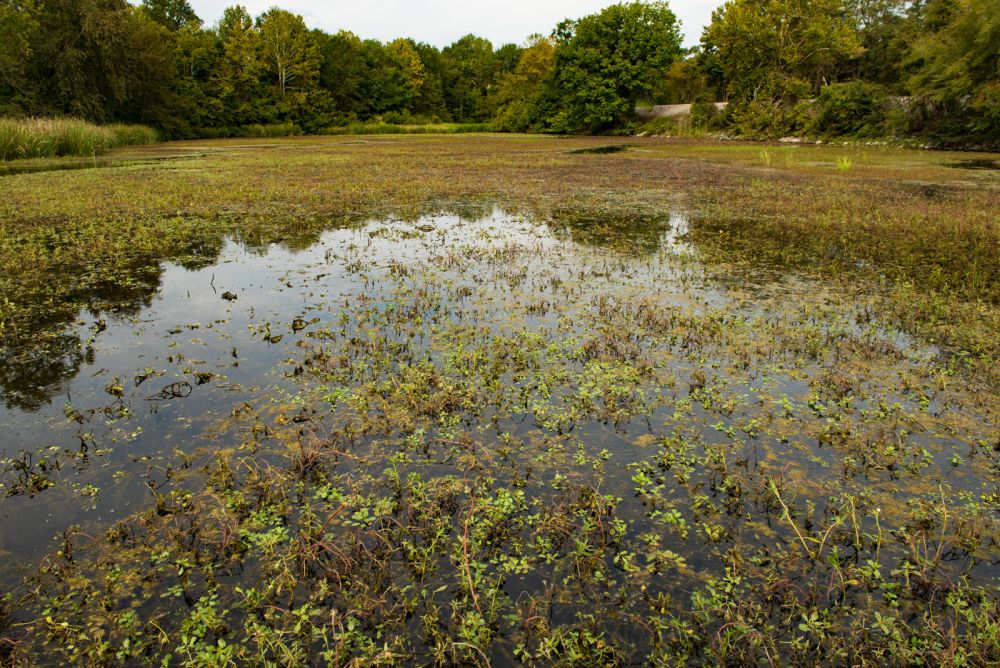 Certain aquatic plant species provide a safe harbor for mosquito larvae. Anderson explained that, within pockets of vegetation lie numerous pools of water – sometimes only a coffee cup in size – where mosquitos breed and reproduce by the tens of thousands.
Certain aquatic plant species provide a safe harbor for mosquito larvae. Anderson explained that, within pockets of vegetation lie numerous pools of water – sometimes only a coffee cup in size – where mosquitos breed and reproduce by the tens of thousands.
As more people buy lake property, build homes and live on the lakes, requests for Alabama Power Environmental Affairs' help with water weeds and mosquitoes have increased. From the '90s to about 2010, Anderson noted, during spring through early fall, the company received about 400 calls annually concerning mosquitoes and nuisance vegetation. Now, that number has grown to about 1,200.
"We do these things for the public's enjoyment of our lakes," Anderson said. "It's not only in keeping with FERC, as mandated by our hydro licenses, but our commitment as good environmental stewards."
Enhancing habitat
Treating aquatic weeds isn't the only way Alabama Power's Environmental Affairs team manages the reservoirs. The company recognizes the benefits native aquatic plants provide as fish and wildlife habitat and in protecting the shoreline from erosion caused by boat wakes. That's why the team partners with college and high school fishing teams to establish native water willow on certain reservoirs as well as deploy fish attraction devices (FADs) to provide additional fish habitat.
For more information about Alabama Power's aquatic vegetation management efforts, click here. For additional information about Alabama Power's environmental stewardship efforts, click here.

